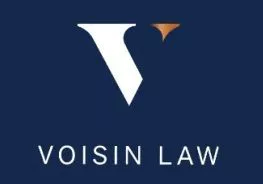Trevor Norman, Volaw's Director of Islamic Finance and Funds Group, considers the legal implications of Islamic financial institutions entering into transactions that are found not to comply with Shari'a law.
In a recent decision by the High Court in England, an Islamic financial institution established in Kuwait successfully argued that a wakala contract it had entered into with a customer did not comply with Shari'a and because the institution was prevented by its constitutional documents from entering into agreements that did not comply with Shari'a, the contract was void. The facts of this case will be discussed below, but following on from the much publicised Sukuk crisis in Dubai, and other less publicised similar defaults on Sukuk issued by companies established in the GCC over the past few years, a large question mark hangs over the future of Islamic finance and legal documentation of Shari'a-compliant structured finance transactions.
A wakala is a contract of agency in which one party appoints another party to perform a certain task on its behalf, usually for payment of a fee or commission but in some cases the investor receives only the agreed profit return; anything made above that is kept by the financial institution. In this particular case Blom Development Bank, established in Lebanon, placed US$10 million with The Investment Dar Company of Kuwait under a wakala agreement. The Investment Dar failed to fulfil its obligations under the agreement and had not repaid the capital invested to Blom, nor any profit return on the investment account. The agreement was governed by English Law so Blom brought an action in the English courts seeking repayment of the capital and the agreed profit. The Court ordered The Investment Dar to repay the capital, but not the profit. However, on appeal, and following the legal arguments outlined above, the Court agreed that the wakala agreement did not comply with Shari'a and therefore the agreement was void.
I have no doubt that much will be written on the Judge's ruling over the failing of the wakala agreement to be Shari'a-compliant and I am equally sure many lawyers and other advisors will be scanning the small print of such agreements in future. However, it is the ruling that where an Islamic financial institution has been established in a jurisdiction that permits institutions incorporated in that jurisdiction to avoid obligations arising from contracts that go beyond the powers in the institution's constitutional documents, that could have far reaching consequences for participants in Islamic finance transactions. Most institutions with a wholly Islamic offering will have similar prohibitions in their constitutional documents, indeed it may be required by law in their home jurisdiction that to be classified as Islamic rather than operating through an "Islamic window" that they include these prohibitions.
Institutions incorporated in the UK and much of the western world would generally not be able to avail themselves of such a defence. The doctrine of ultra vires, as this is known, holds that if a corporation enters into a contract that is beyond the scope of its corporate powers, the contract is illegal. The doctrine played an important role in the development of corporate powers but is largely obsolete in modern corporate law. Historically, courts adopted the view that such acts were voidable rather than void and that the facts should dictate whether a corporate act should stand and over time a body of principles developed that prevented the application of the ultra vires doctrine in corporate law.
A related question arose in the 2004 Beximco case in which Beximco Pharmaceuticals Ltd as borrowers from Shamil Bank of Bahrain unsuccessfully argued that the "governing law" clause of the loan agreement was inoperable as it required the application of both "the principles of the Glorious Shari'a ... and ... with the laws of England" and therefore the agreement was unenforceable. The High Court and Court of Appeal in England concluded that the principles of Shari'a did not apply to the agreement as the inclusion in the governing law clause was intended to reflect the Bank's principles in doing business, and not as a system of law designed to trump the application of English law.
So what should investors or other parties to an agreement with an Islamic finance institution do to ensure that the agreement is upheld in the event of a dispute? They should:
- ensure they obtain and fully review the constitutional documents of the institution with reference to national laws on ultra vires transactions, particularly those relating to Shari'a-compliant transactions;
- obtain appropriate certificates and representations from the institution's Shari'a Supervisory Board;
- ensure the relevant agreement includes representation and warranties that the agreement does not conflict with the institution's constitutional documents;
- where possible, arrange for the transaction to be undertaken through a Special Purpose Vehicle established as a subsidiary of the institution, but in a jurisdiction where it is highly unlikely that such defences to non-performance in a contract would be upheld, e.g. Jersey.
Islamic finance is still recovering from the affects of the Shk Taqi Usmani's widely misreported statement in 2008 that many Sukuk were not fully Shari'a-compliant and the subsequent AAOIFI Resolution on Sukuk; it must be hoped that the ruling in the Blom case does not fuel greater distrust in transactions structured within the principles of the Glorious Shari'a.
The content of this article is intended to provide a general guide to the subject matter. Specialist advice should be sought about your specific circumstances.


